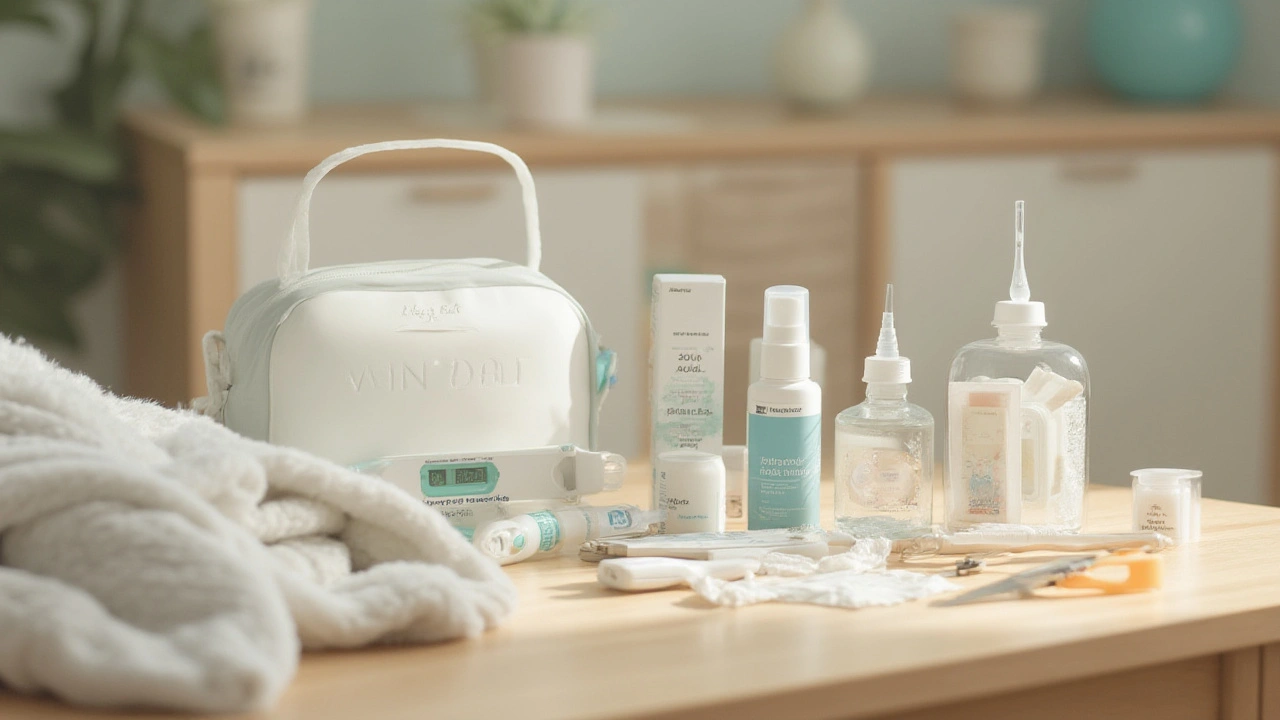Ever seen those first aid kit lists for newborns and thought, “Do I seriously need all that?” Most parents grab everything on the market “just in case,” but half the stuff rarely gets touched. If you want to know what’s really useful, here’s what matters when you’re prepping for your new baby.
You only need the basics: a digital thermometer (ear or forehead styles are simplest), baby nail clippers or files (those tiny nails are surprisingly sharp), a nasal aspirator or suction bulb (because babies can’t blow their noses), a soft-bristle baby hairbrush, saline drops, and a gentle baby-safe ointment for diaper rash. Skip adult meds—newborns require specific doses, so don’t just reach for the family painkillers.
Medication safety is a big deal. Always check expiration dates before giving your baby anything, even just infant pain relief. Expired meds can lose their punch or, worse, become risky. Don’t want expired stuff lurking in your cabinet? Set a calendar reminder to check your supplies every couple of months. If you find anything out of date, don’t toss it in the trash. Medications, even over-the-counter ones, can leak into water supplies or harm pets and kids if thrown away wrong. Pharmacies often have drop-off bins—much safer for everyone.
Storage matters. Keep the kit up high, out of reach, and away from moisture (so, not in the bathroom if you can help it). Label everything. In the middle of the night, sorting fever medicine from drops with bleary eyes is the last thing you want. A clear zippered pouch or sturdy box works way better than a loose pile of boxes in a drawer.
Make a habit of checking your kit after doctor visits. Your pediatrician may swap their recommendation for medicine brands or dosing tools as your baby grows. You don’t need a pharmacy’s worth of gear—just a few targeted things that actually work for emergencies or the sniffles.
Bottle thermometers, hot water bags, and adult bandages mostly gather dust. Instead, stash extras of pacifiers, a change of clothes, and burp cloths nearby—they’re lifesavers for everyday mini-crises.
One last thing: If you’re ever unsure about using something or treating a symptom, call your pediatrician—not the internet! Nothing beats real-world advice from someone who knows your baby’s health. Prepping well now means you’ll panic less when a bump, sniffle, or fever hits.

Discover what every newborn first aid kit should include, why each item matters, and expert-backed tips to keep your baby safe and healthy from day one.